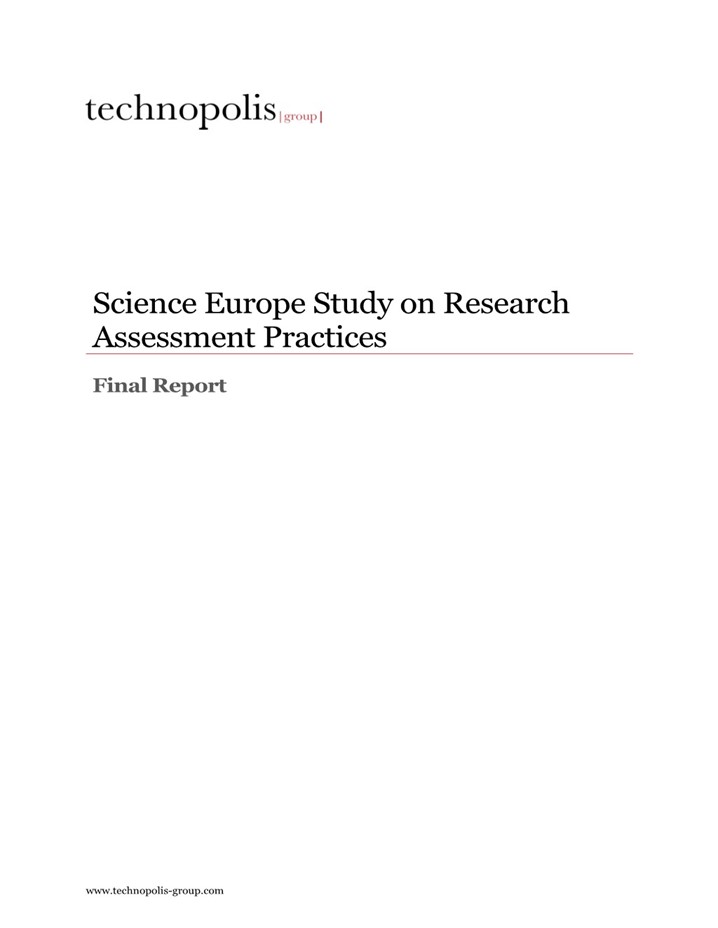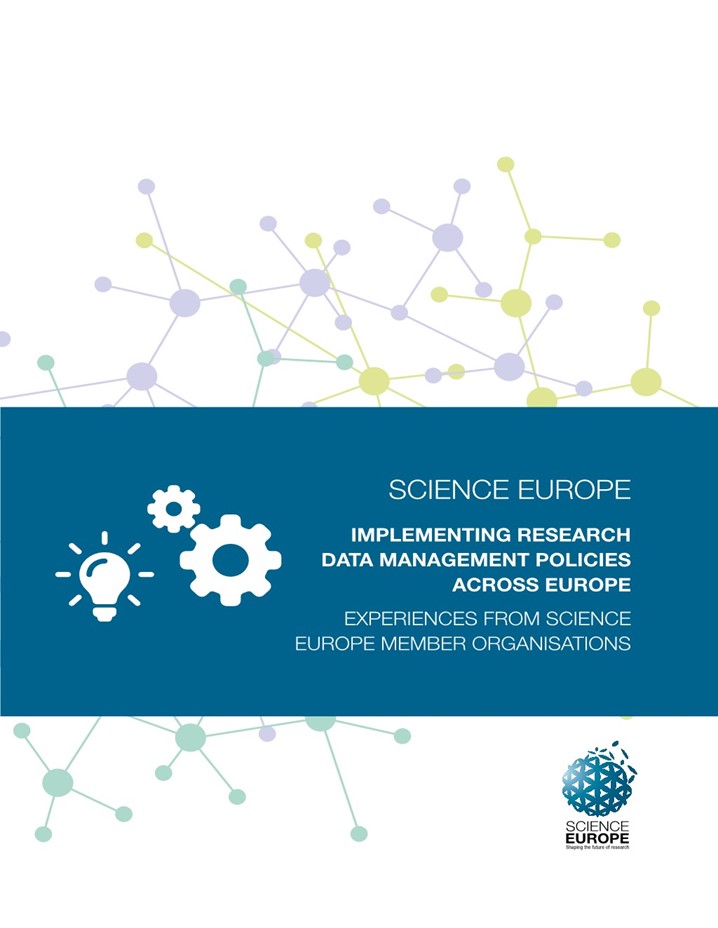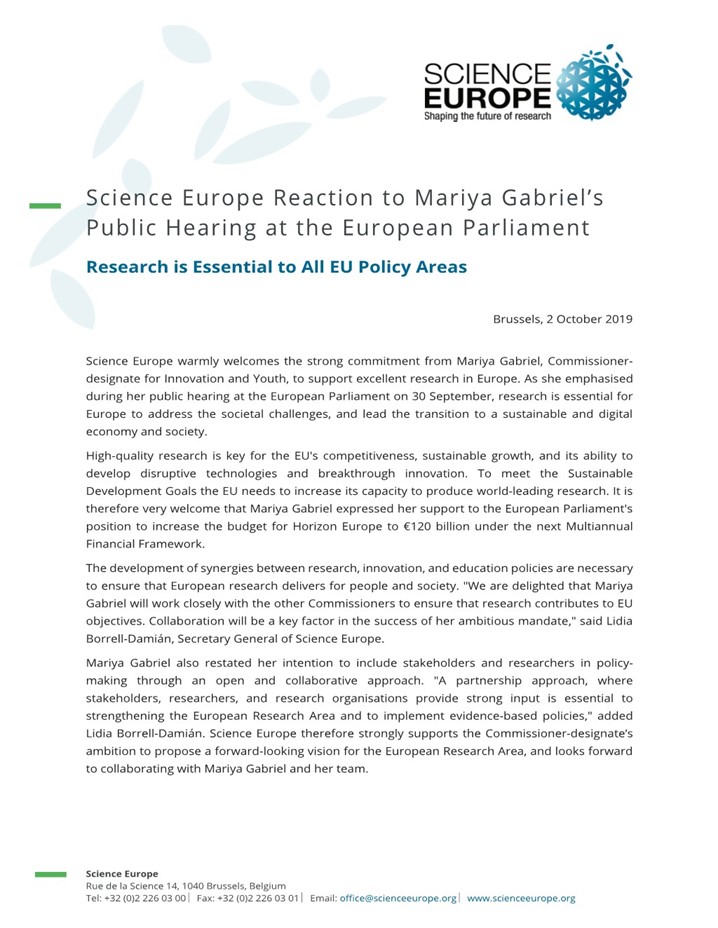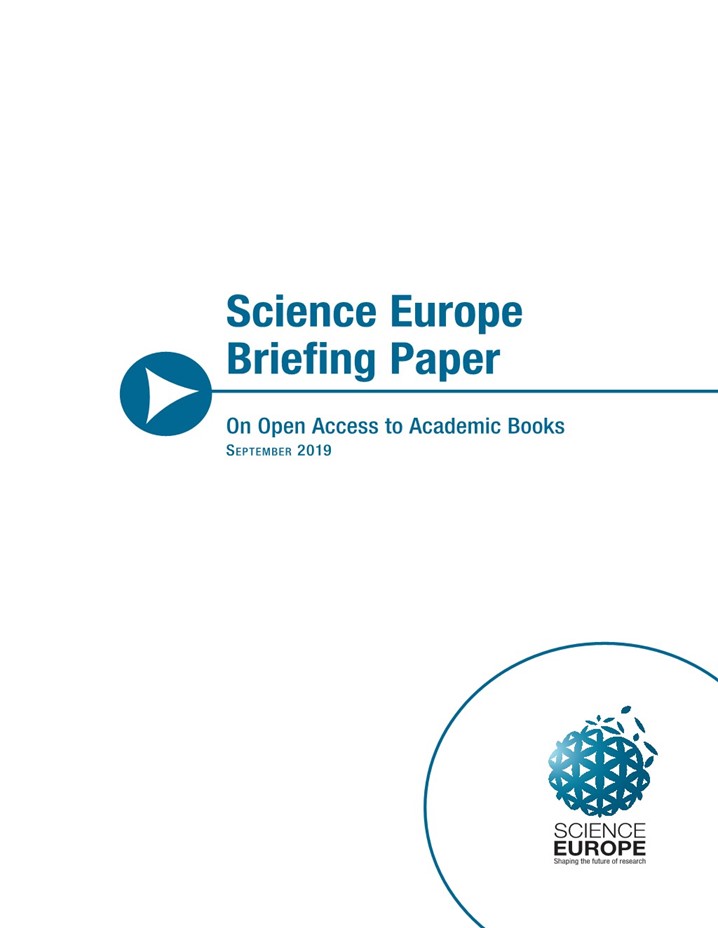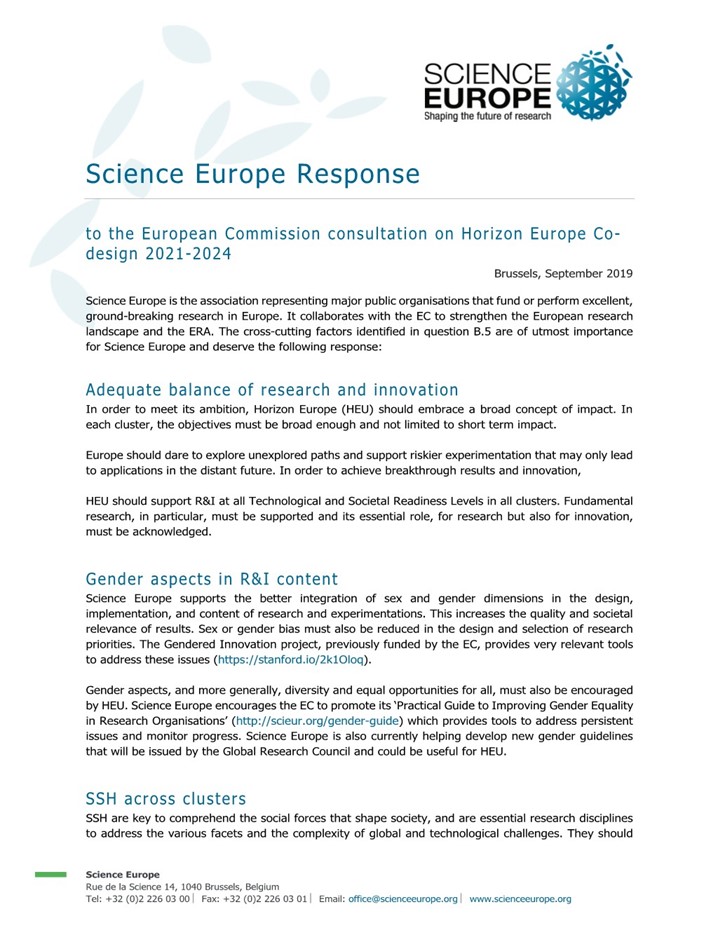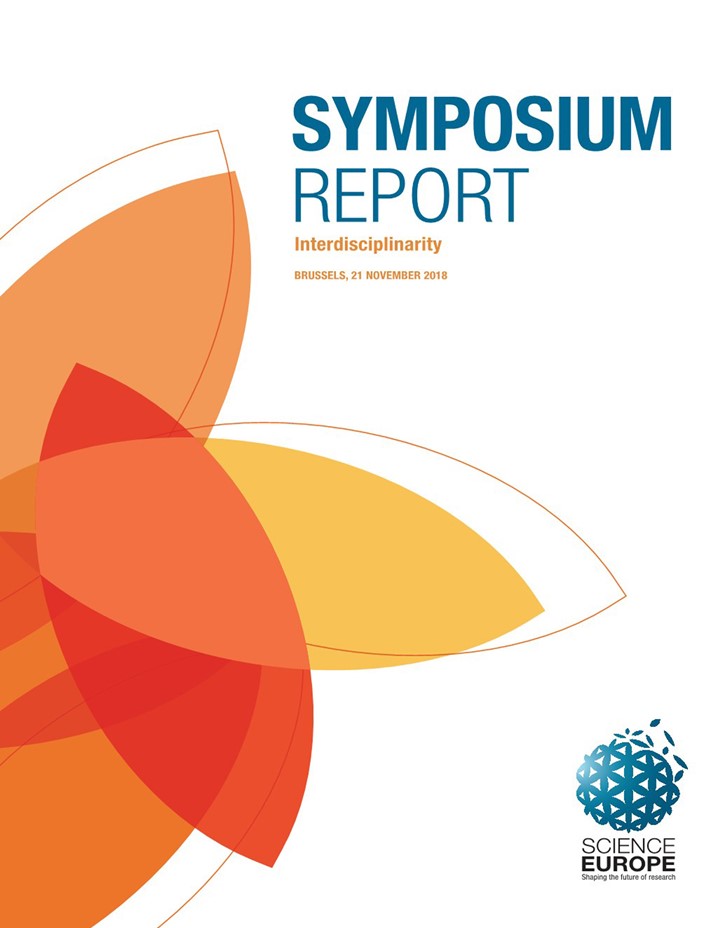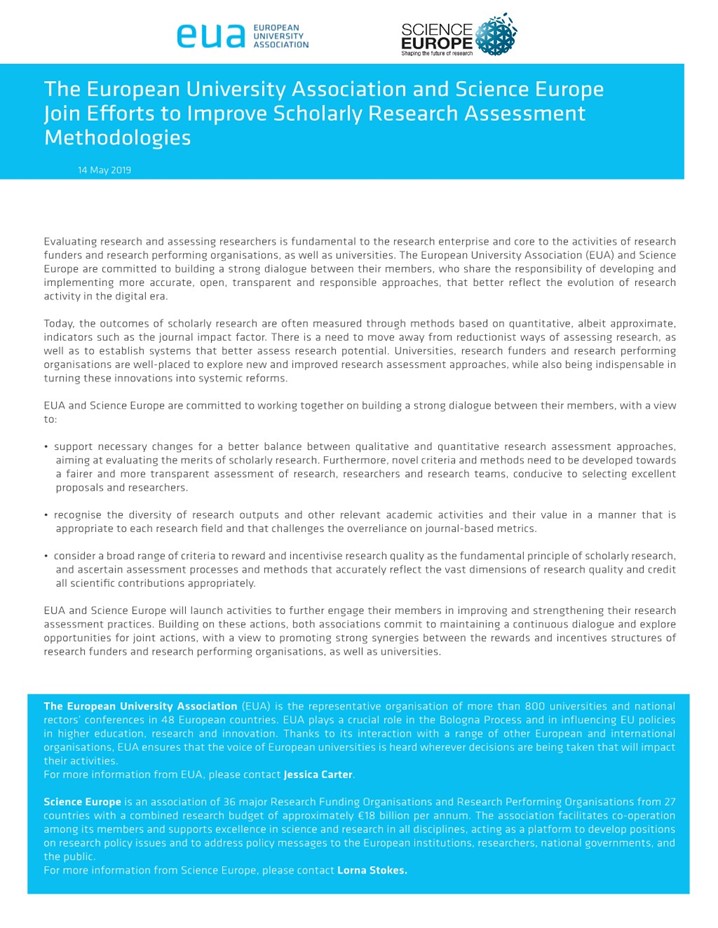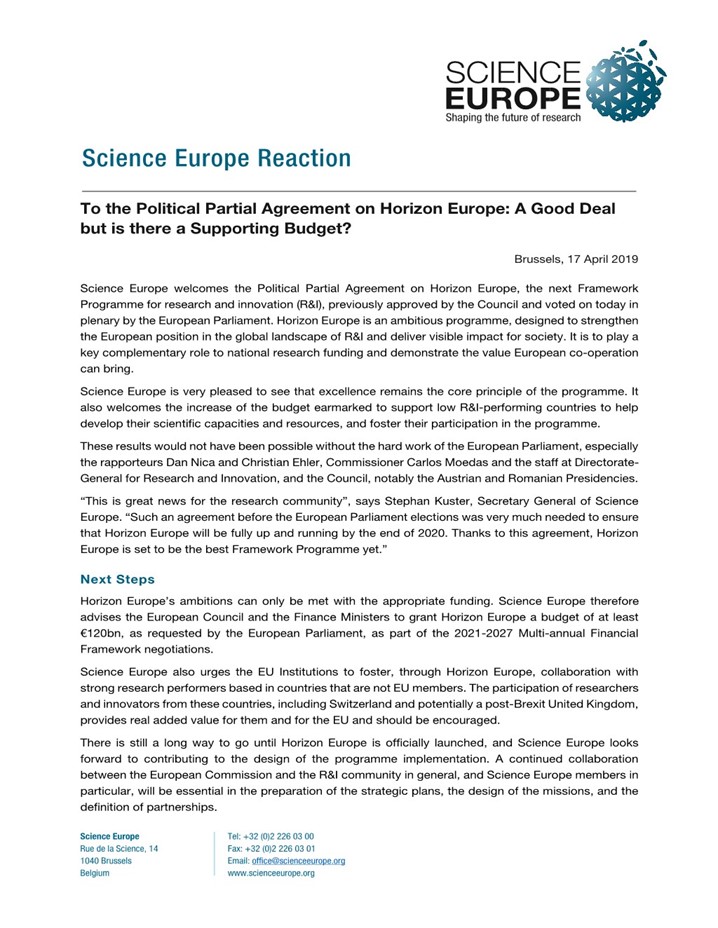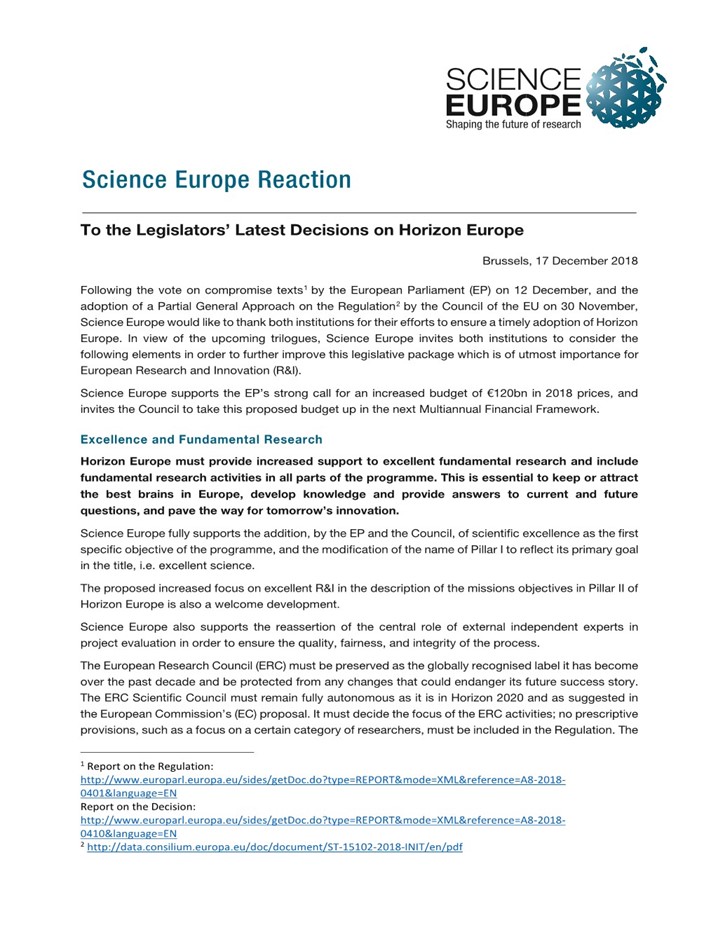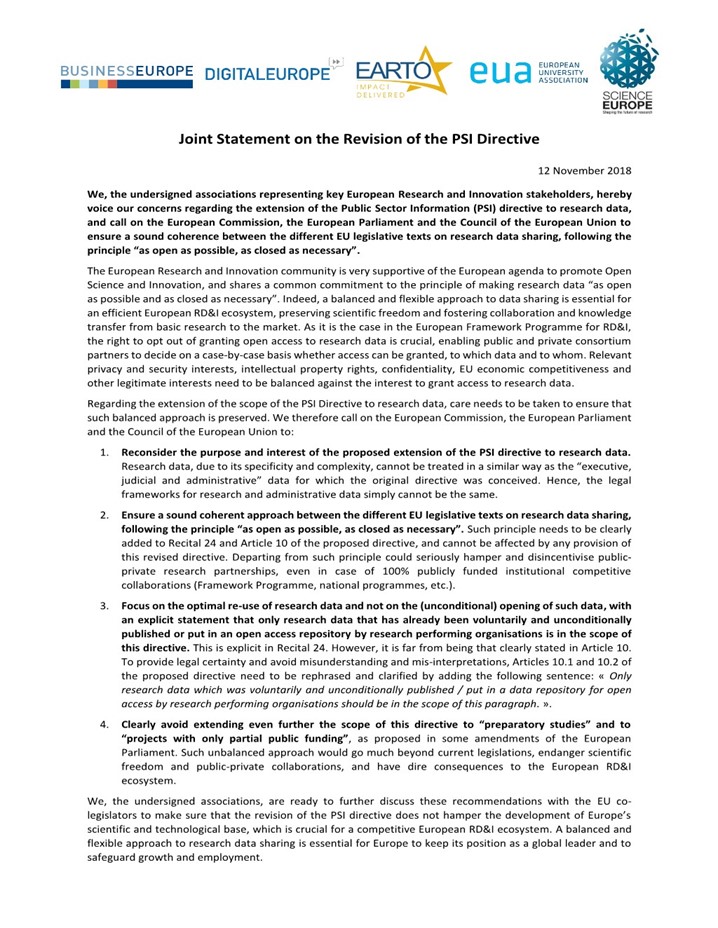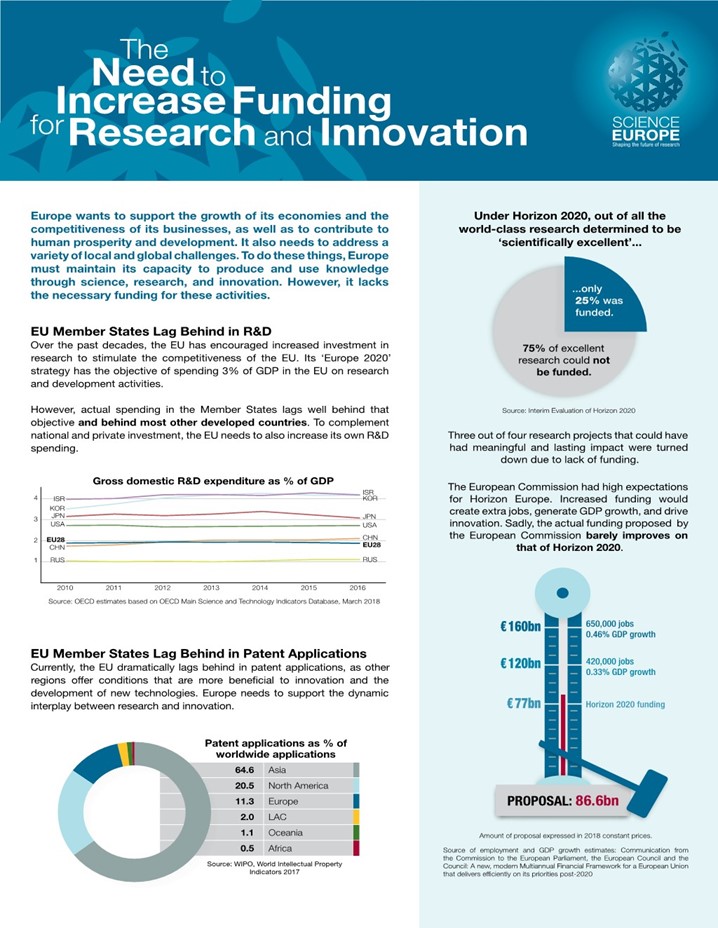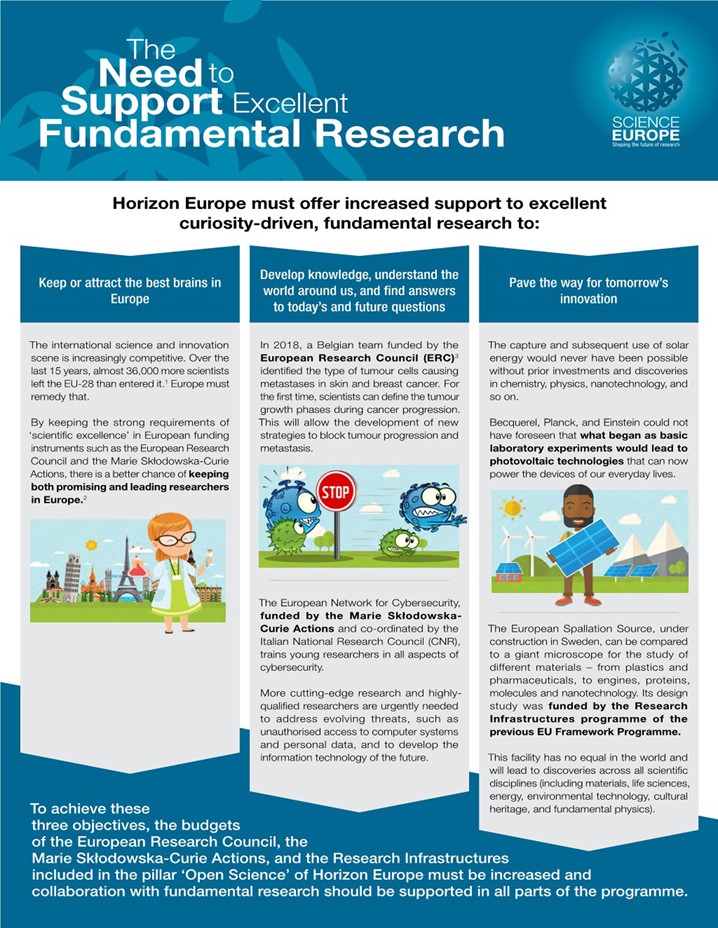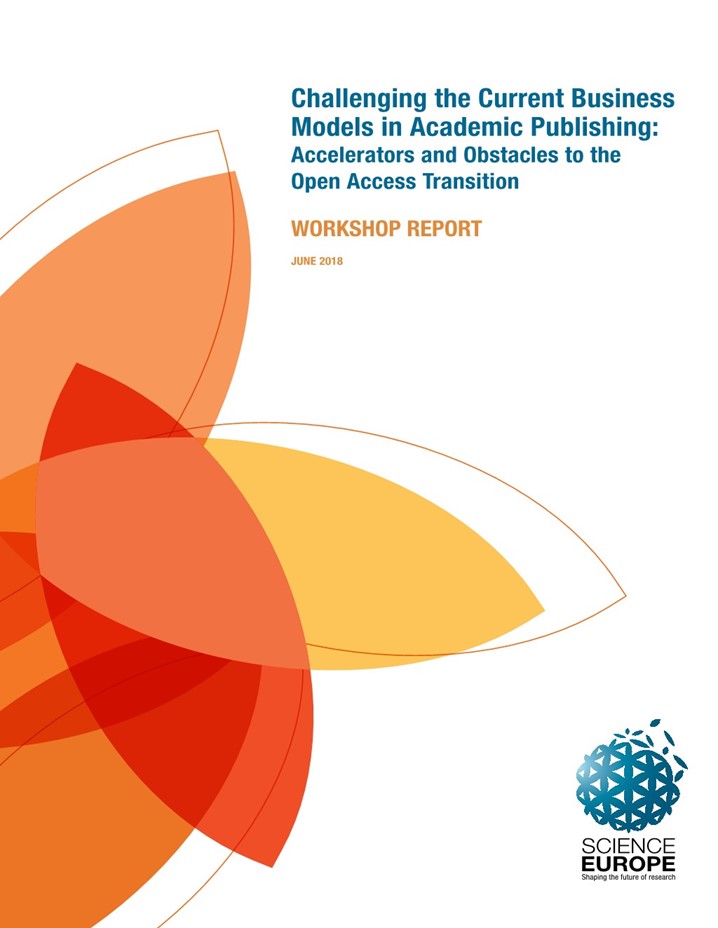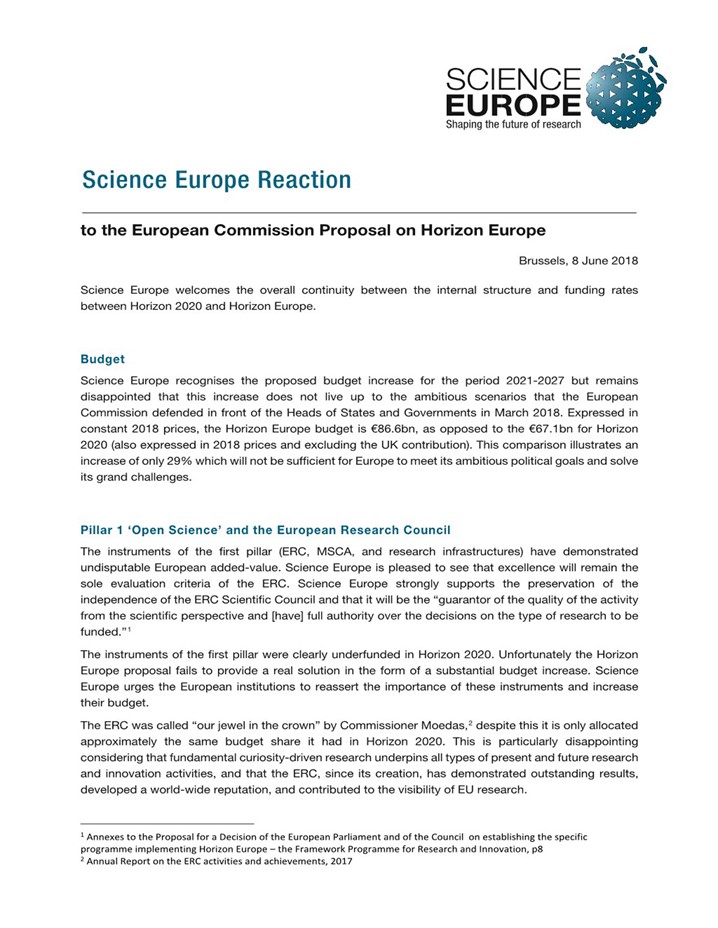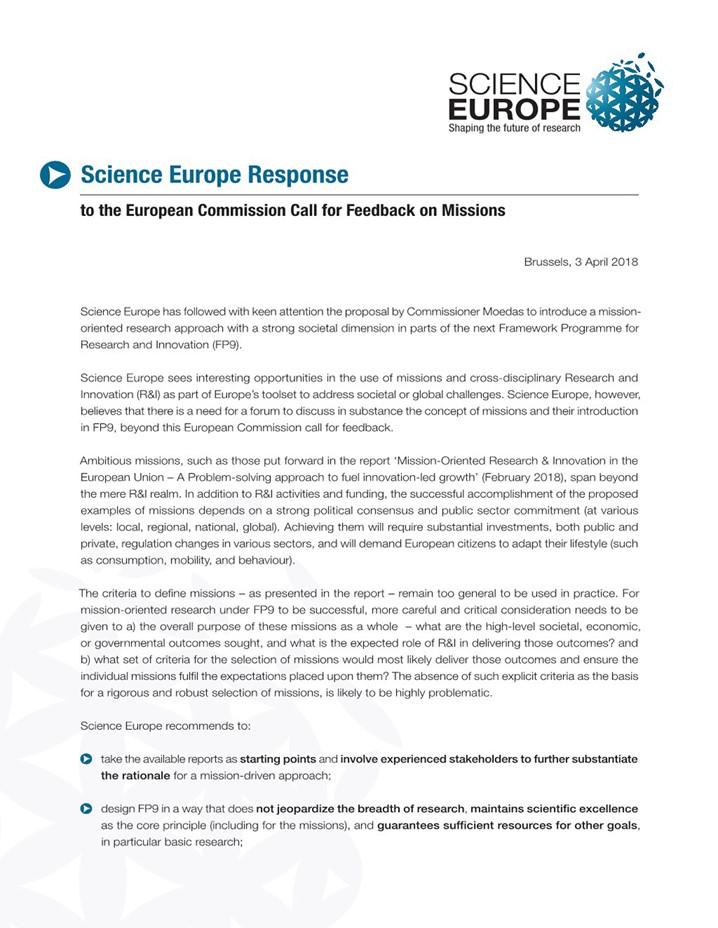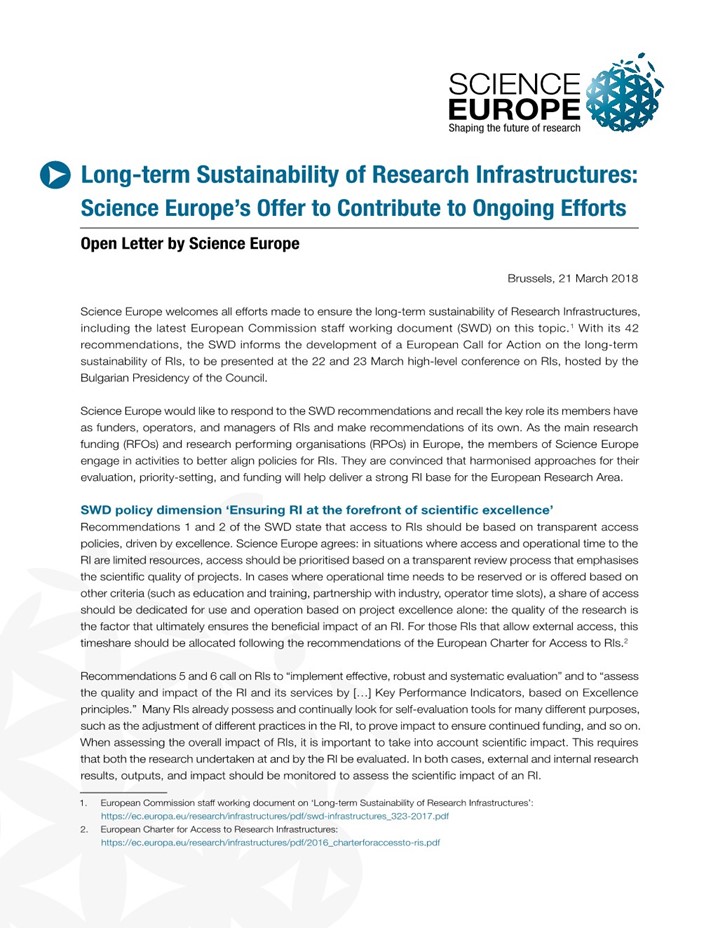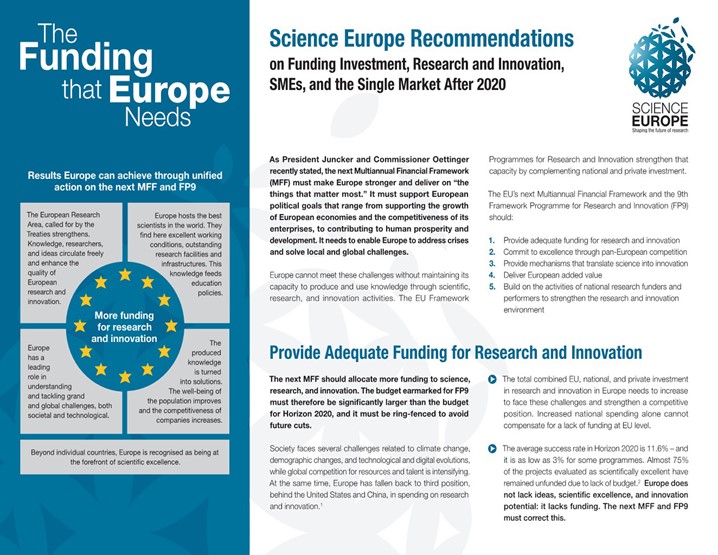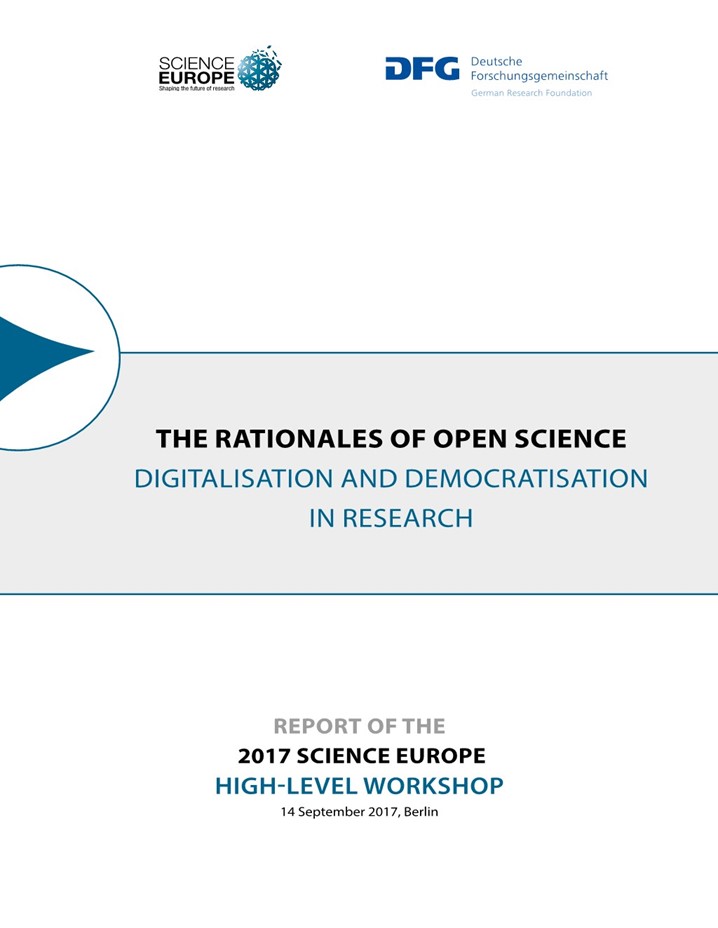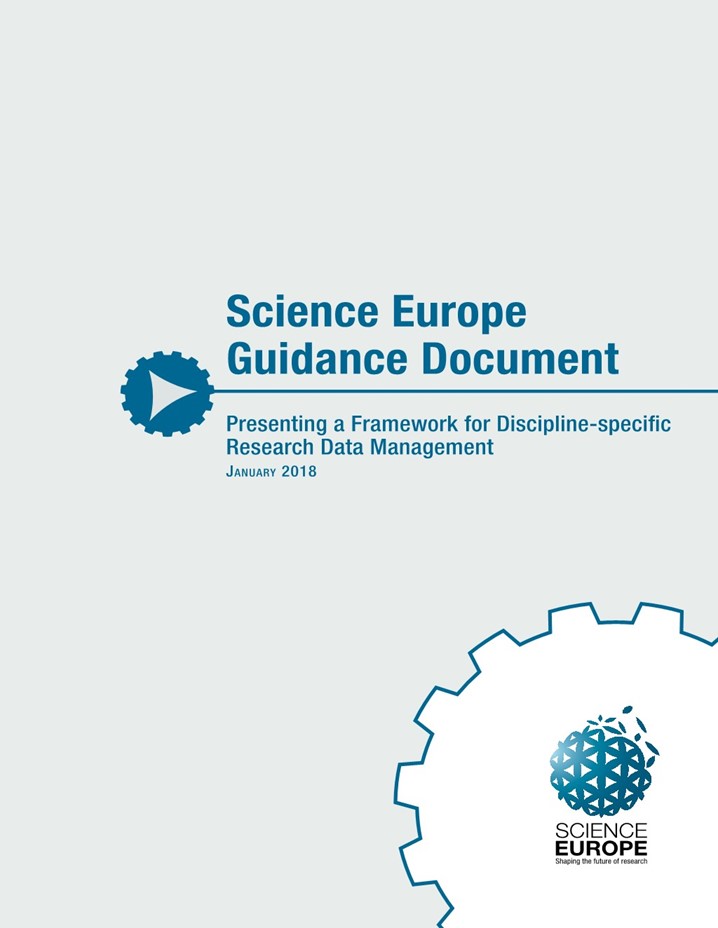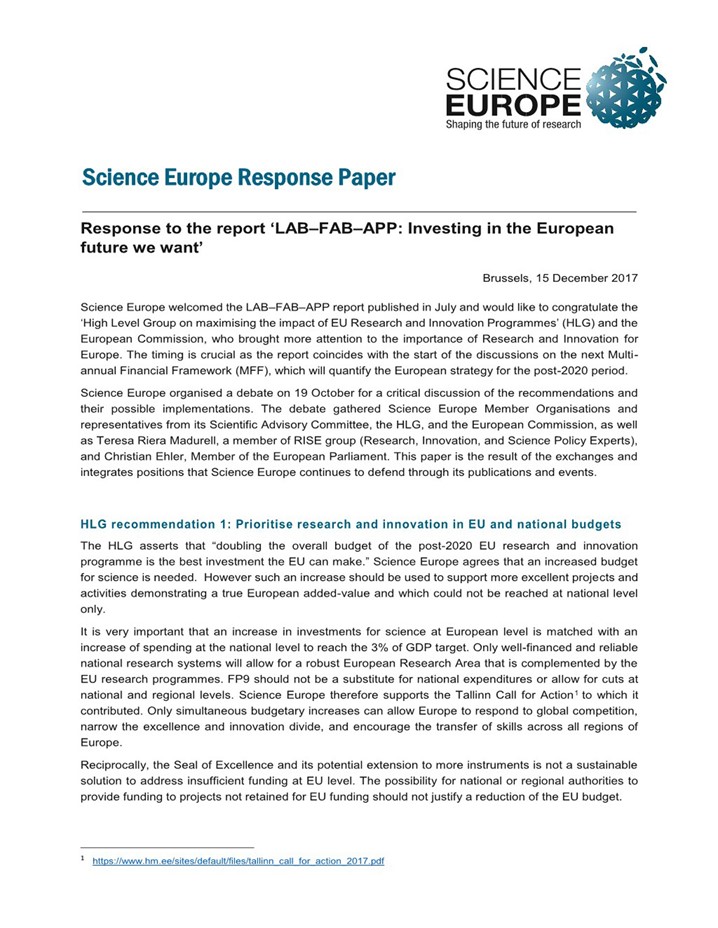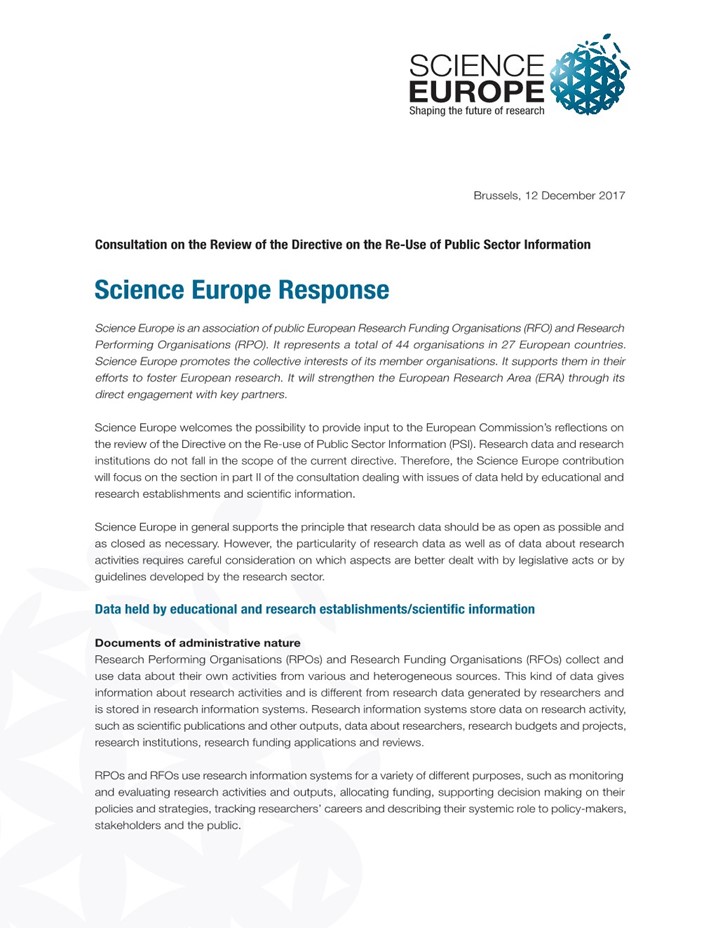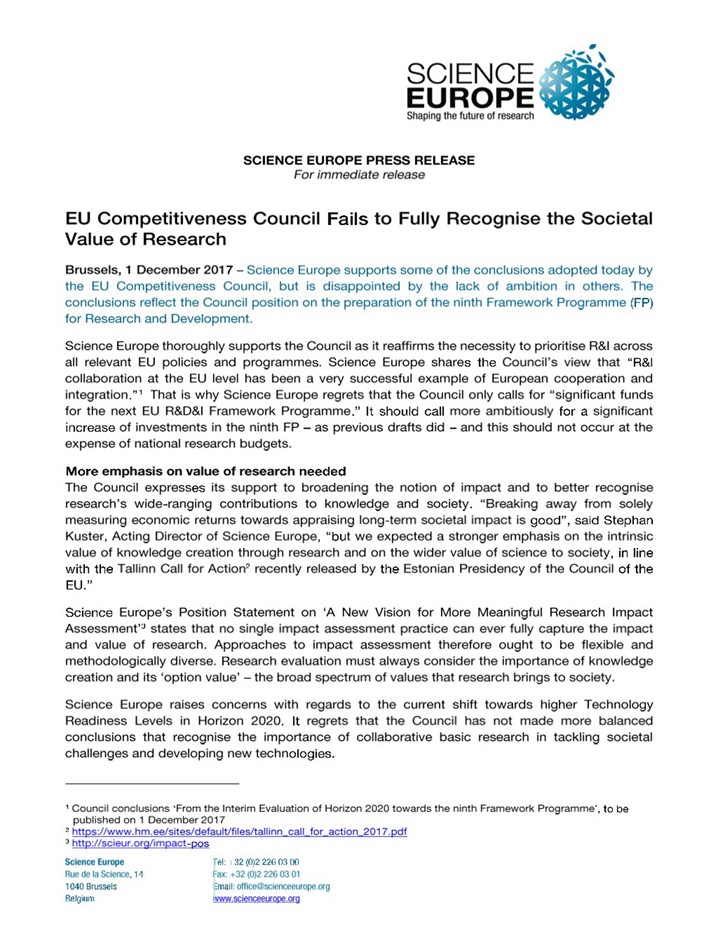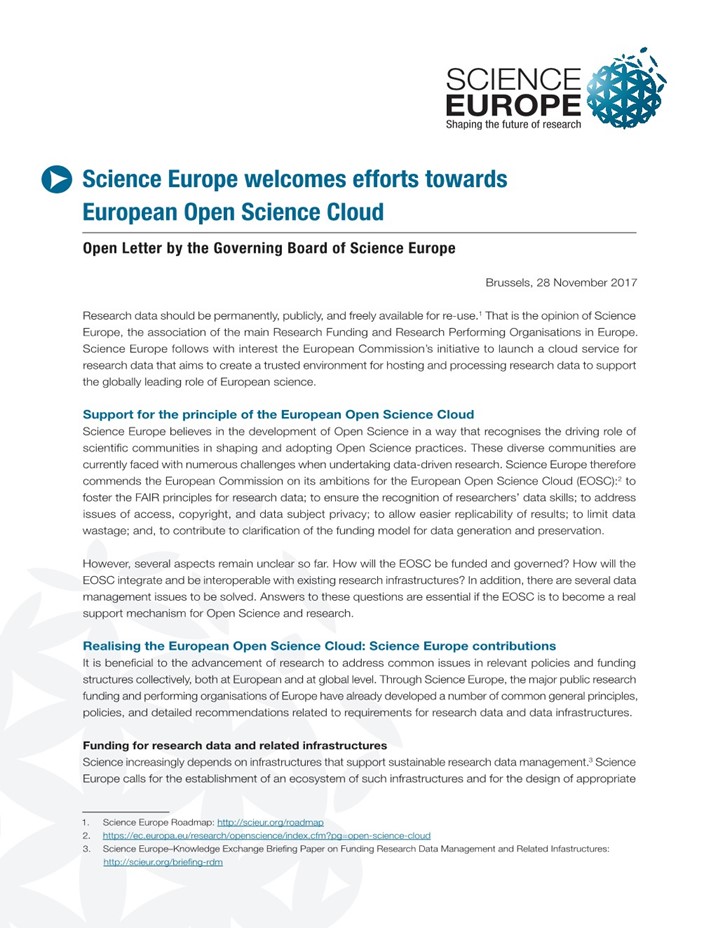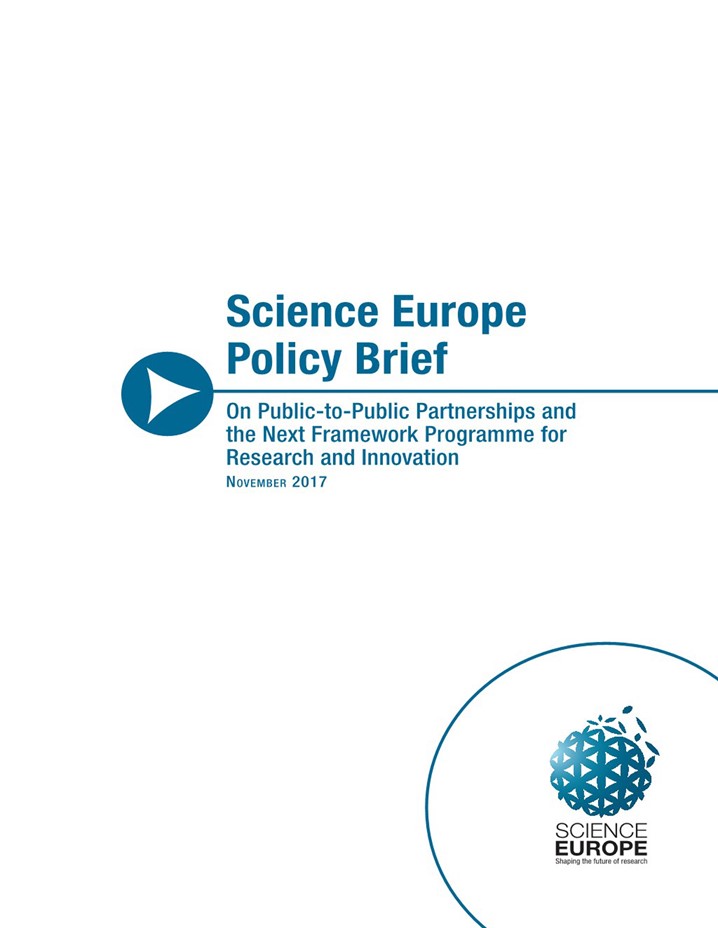Member-only content is available on this page. Please log in to view this content.

Our resources
Discover Science Europe’s comprehensive library of resources, including the most recent publications, briefings, and position statements.
169 resource(s) found
Science Europe Study on Research Assessment Practices
In 2019, Science Europe conducted a flagship study on research assessment processes and practices. The study was developed and overseen by the Science Europe Task Force on Research Assessment and the Science Europe Office, and implemented by Technopolis Group Vienna.
Implementing Research Data Management Policies Across Europe: Experiences from Science Europe Member Organisations
Does your organisation want to develop requirements for data management plans (DMPs) or update existing ones?
Take a look at our latest publication to find out how to do so in three steps.
Reaction to Mariya Gabriel’s Public Hearing at the European Parliament: Research is Essential to All EU Policy Areas
Science Europe warmly welcomes the strong commitment from Mariya Gabriel, Commissioner-designate for Innovation and Youth, to support excellent research in Europe. Research is essential for Europe to address the societal challenges, and lead the transition to a sustainable and digital economy and society.
Science Europe Call to the European Institutions: The Need for an Ambitious Budget for Horizon 2020
Ahead of the trilogue negotiations on the EU Budget for 2020, Science Europe calls on the Council to agree to a substantial budgetary increase for Horizon 2020. Outcomes of Horizon 2020 provide a key contribution to long-term economic growth, European competitiveness, and in finding solutions to societal and global challenges.
Briefing Paper on Open Access to Academic Books
So far, much of the focus of the transition towards Open Access has been on scholarly and scientific articles. However, a significant number of disciplines, notably – but not only – within the Social Sciences, the Arts, and the Humanities produce and heavily use books. This briefing paper identifies the key issues at stake in implementing a policy of Open Access to academic books, and outlines recommendations for different stakeholder groups to facilitate and accelerate such a policy.
Response to the European Commission Consultation on Horizon Europe Co-design 2021-2024
For Horizon Europe’s ‘Strategic Plan’ 2021-2024, Science Europe urges the European Commission to support cutting-edge research and innovation at all Technological and Societal Readiness Levels, and to adopt objectives that are not limited to short term impact. Europe should dare to explore unexplored paths and support riskier experimentation. Moreover, Science Europe recommends to reinforce a series of cross-cutting factors to increase the scientific, economic, and societal impacts of Horizon Europe.
Science Europe Symposium on Interdisciplinarity
Interdisciplinarity is increasingly used to tackle complex scientific questions and address large societal challenges. At the same time, the evaluation of interdisciplinary research proposals poses a set of problems, ranging from missing common standards and criteria to shortages of peer reviewers with experience in evaluating interdisciplinary research. At its third Symposium, Science Europe and its Scientific Advisory Committee brought together researchers and other experts experienced in interdisciplinarity with high-level representatives from Science Europe’s Member Organisations, who fund and perform such research.
Joint Statement on Research Assessment
Released in partnership with the European University Association (EUA), this joint statement demonstrates a commitment to building a strong dialogue between members of both associations, who share the responsibility of developing and implementing more accurate, open, transparent, and responsible approaches that better reflects the evolution of research activity in the digital era.
Reaction to the Political Partial Agreement on Horizon Europe: A Good Deal but is there a Supporting Budget?
Science Europe welcomes the Political Partial Agreement on Horizon Europe, voted on today in plenary by the European Parliament. Science Europe is very pleased to see that excellence remains the core principle of the programme. However Horizon Europe’s ambitions can only be met with the appropriate funding and we therefore advise that Horizon Europe is granted a budget of at least €120bn.
Reaction to the Legislators’ Latest Decisions on Horizon Europe
In view of the upcoming trilogues between the three European institutions, Science Europe invites all parties to consider a series of elements to further improve the legislative package for Horizon Europe. The budget of €120bn proposed by the European Parliament is a very welcome proposal and should be taken up by the Council in the next Multiannual Financial Framework. Moreover, fundamental research must be included in all parts of the programme, including the European Innovation Council.
Joint Statement on the Revision of the PSI Directive
In this joint statement research and Innovation stakeholders call on the EU institutions to seek a balanced approach to data sharing in response to the European Commission’s proposal for a revision of the Directive on re-use of public sector information (PSI Directive). While the partners are supportive of the European agenda to promote Open Science and innovation, and share a common commitment to the principle of making research data ‘as open as possible and as closed as necessary’, there is a need to focus on the optimal re-use of research data and not on the (unconditional) opening of such data.
Factsheet on the Need to Increase Funding for Research and Innovation
The overall funding for research and innovation in Europe needs to be increased and an adequate ring-fenced budget should be provided for Horizon Europe. In this factsheet Science Europe illustrates some of the reasons why.
Factsheet on the Need to Support Fundamental Research
The European Commission proposal for Horizon Europe falls short of acknowledging the importance of fundamental research. This factsheet demonstrates the essential role fundamental research plays, not only for research, but also for innovation.
Challenging the Current Business Models in Academic Publishing: Accelerators and Obstacles to the Open Access Transition
‘Big Deals’ are one of the dominant but highly-disputed business models in academic publishing. The model needs to be further analysed before it can be used as an instrument to implement and increase Open Access. This workshop was as organised to trigger further expert discussions on the current business models and consider the available alternatives.
Reaction to the European Commission Proposal on Horizon Europe
Science Europe welcomes the overall continuity between the internal structure and funding rates between Horizon 2020 and Horizon Europe. However, the proposed budget increase for the period 2021-2027 does not live up to the ambitious scenarios defended by the European Commission in front of the Heads of States and Governments in March 2018 and will not be sufficient for Europe to meet its ambitious political goals.
Response to the European Commission Call for Feedback on Missions
Science Europe sees interesting opportunities in the use of missions and cross-disciplinary Research and Innovation as part of Europe’s toolset to address societal or global challenges. However, the criteria for selecting missions so far have been too broad and more discussion is needed on the concept of missions and their introduction in FP9.
Long-term Sustainability of Research Infrastructures: Science Europe’s Offer to Contribute to Ongoing Efforts
Science Europe welcomes all efforts made to ensure the long-term sustainability of research infrastructures. Released prior to the high-level conference on research infrastructures by the Bulgarian Presidency of the Council, this Open Letter responds to the European Commission’s Staff Working Document on their sustainability. It makes a number of recommendations, based on the key role of Science Europe’s members as funders, operators, and managers of infrastructures.
The Funding that Europe Needs: Recommendations on the Multiannual Financial Framework
The Multiannual Financial Frameworks (MFF) determine the budget allocation of the EU over a period of seven years. Science Europe recommends strengthening science, research, and innovation by increasing their budget in the MFF for 2021–2027 and to take measures to ensure that the 9th Framework Programme for Research and Innovation will have the capacity to achieve its goals.
The Rationales of Open Science: Digitalisation and Democratisation in Research
How can citizens best be involved in the scientific process, and how ‘Open’ can we make science? How do we ensure that the highest standards in scientific research are maintained in such a system? This report provides an overview of the main discussions at the 2017 Science Europe High-level Workshop hosted in Berlin by the German Research Foundation (DFG).
Guidance Document Presenting a Framework for Discipline-specific Research Data Management
Research organisations and funders increasingly ask researchers to create Data Management Plans for their work and proposals. A lack of standardisation means that these can be time-consuming to create and difficult to compare and evaluate. Science Europe presents a framework for the creation of domain-specific protocols that can be used as standardised templates, reducing the administrative burden on both researchers, research organisations, and funders.
Response to the Report ‘LAB–FAB–APP: Investing in the European Future we want’
This is Science Europe’s response to the report ‘LAB–FAB–APP: Investing in the European Future we want’ by the High Level Group on maximising the impact of EU Research and Innovation Programmes. It outlines points of agreement, as well as additional or alternative recommendations, from Science Europe Member Organisations on how the future of European research should take shape.
Response to the Consultation on the Review of the Directive on the Re-Use of Public Sector Information
Science Europe supports the principle that research data should be “as open as possible and as closed as necessary.” However, the particularity of research data as well as of data about research activities requires careful consideration on which aspects are better dealt with by legislative acts or by guidelines developed by the research sector.
EU Competitiveness Council Fails to Fully Recognise the Societal Value of Research
Science Europe supports some of the conclusions adopted today by the EU Competitiveness Council, but is disappointed by the lack of ambition in others. The conclusions reflect the Council position on the preparation of the ninth Framework Programme (FP) for Research and Development.
Science Europe Welcomes Efforts Towards European Open Science Cloud
Science Europe welcomes the efforts made towards the European Open Science Cloud (EOSC). In this open letter, the Governing Board of Science Europe reinforces its view that research data should be permanently, publicly, and freely available for re-use. The proposed EOSC aims to further this goal but a number of important questions still remain.
Policy Brief on Public-to-Public Partnerships and the Next Framework Programme for Research and Innovation
A more strategic approach is needed to the co-ordination between regional, national, and European research activities and to the initiatives supporting them. This briefing presents policy makers with the Science Europe view on how to better organise regional, national, and European research efforts.

